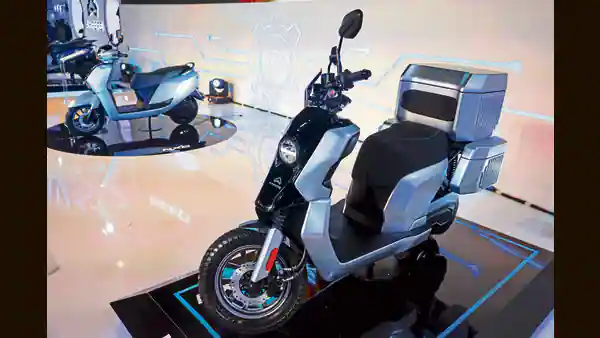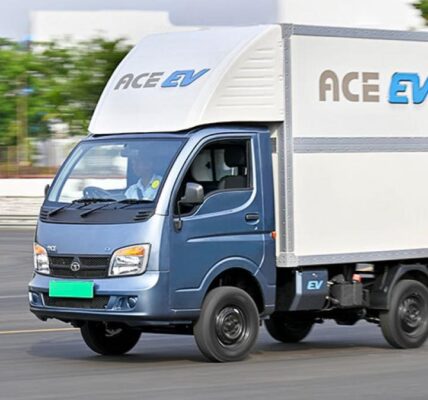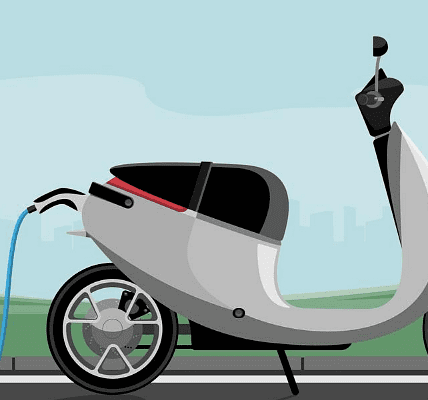India’s automotive industry should target 100% electrification in the two-wheeler and three-wheeler segments over the next five years and emerge as a global champion, former Niti Aayog CEO Amitabh Kant said on Monday.
“This will not only help reduce air pollution but also ensure that we become a global manufacturing champion for electric two-wheelers and three-wheelers. Public mobility is the backbone of a civilised society. Focus should also be on e-buses,” said Kant, G20 Sherpa of India, at the ‘National Dialogue on Emerging Trends in E-Mobility’, organised by the Council on Energy, Environment and Water (CEEW) in New Delhi.
“To accelerate the e-mobility transition, financing will be key. There is a need for mechanisms such as first-loss guarantees, credit enhancement and blended finance, to enable private-capital to flow at scale. We must target to install five million fast chargers, and push for battery swapping and PLIs for localised manufacturing,” Kant added.
Kant also released CEEW Centre for Energy Finance’s (CEEW-CEF) independent report ‘Greening India’s Automotive Sector’ at the event.
The report, supported by Bloomberg Philanthropies, showed that more electric vehicles (EVs) were sold in the country in the first six months of FY23 than in the previous full financial year.
“EVs constituted 6% of all new auto sales in September 2022, up from only 1% in January 2021. CEEW-CEF also launched its ‘Electric Mobility Dashboard’, a free, online tool that captures and dynamically updates, on a fortnightly basis, EV volumes at a national, state and RTO level,” it said.
EVs have witnessed rapid sales growth and market reach post pandemic. The CEEW-CEF study found that states with EV policies incorporating consumer incentives saw two times market growth compared to states without such incentives.
“Larger incentives are also linked to more visible market growth. States with higher incentives such as Assam, Goa and Gujarat registered a near 20X growth in the six-month period after the notification of their incentive policies. On the other hand, states with lower incentives saw their markets grow by only 4.5X,” the report added.
Twenty-one Indian states have notified their own EV policies, with 15 of these providing incentives in the form of subsidies to buyers. Uttar Pradesh and Tamil Nadu are the most recent states to announce EV policies.
According to the report, FAME II (Faster Adoption and Manufacturing of Hybrid and Electric Vehicles) has been impactful in driving electric two-wheelers (e-2W) volumes, with 56% of their unit target achieved.
“However, e-three-wheelers (e-3W), including e-rickshaws, and commercial e-four-wheelers lag considerably behind, both having achieved just 12% of their respective FAME II unit targets. Despite a blip in trends due to the incidents of electric 2Ws catching fire, timely policy reaction helped EV sales recover soon after,” it said.
The CEEW-CEF study also found that Uttar Pradesh leads as the state with the highest EV sales (1.65 lakh) in the country in FY 2021-22 and the first six months of FY 2022-23. It has an EV penetration of nearly 4%. It was followed by Maharashtra with 1.12 lakh EV sales. However, Delhi has India’s highest EV penetration (8.30%), followed by Assam (5.91%).
Among RTOs, Pune leads in absolute sales with 21,665 EVs sold through FY 2021-22 and the first six months of FY 2022-23, but Delhi’s Burari taxi unit is India’s greenest RTO with an EV penetration of 46.4%.
“India’s EV segment has been a bright spot for the auto sector, and growing from strength to strength. We are well-positioned to emerge as a global manufacturing hub for electric two- and three-wheelers…states must also give incentives to vehicle categories more suited for electrification. The successful greening of India’s auto sector could be a shining example of a transition that generates jobs and spurs economic growth in a just and sustainable manner,” said Arunabha Ghosh, CEO, CEEW.
The CEEW-CEF study found that electric two-wheelers and e-rickshaws jointly lead the EV segment in India, forming 93.5% of the total market. Nearly 3 lakh e-2Ws and 1.7 lakh e-rickshaws were sold in the first six months of FY23 alone, a record for both. However, despite such high numbers, the penetration of EVs among all 2Ws remains low at only 4%.
States like Maharashtra, Karnataka, Tamil Nadu, and Rajasthan can attribute their success in EV sales to the e-2W category. E-rickshaws form the majority of EV sales in Uttar Pradesh and Tripura where they offer last-mile connectivity.







